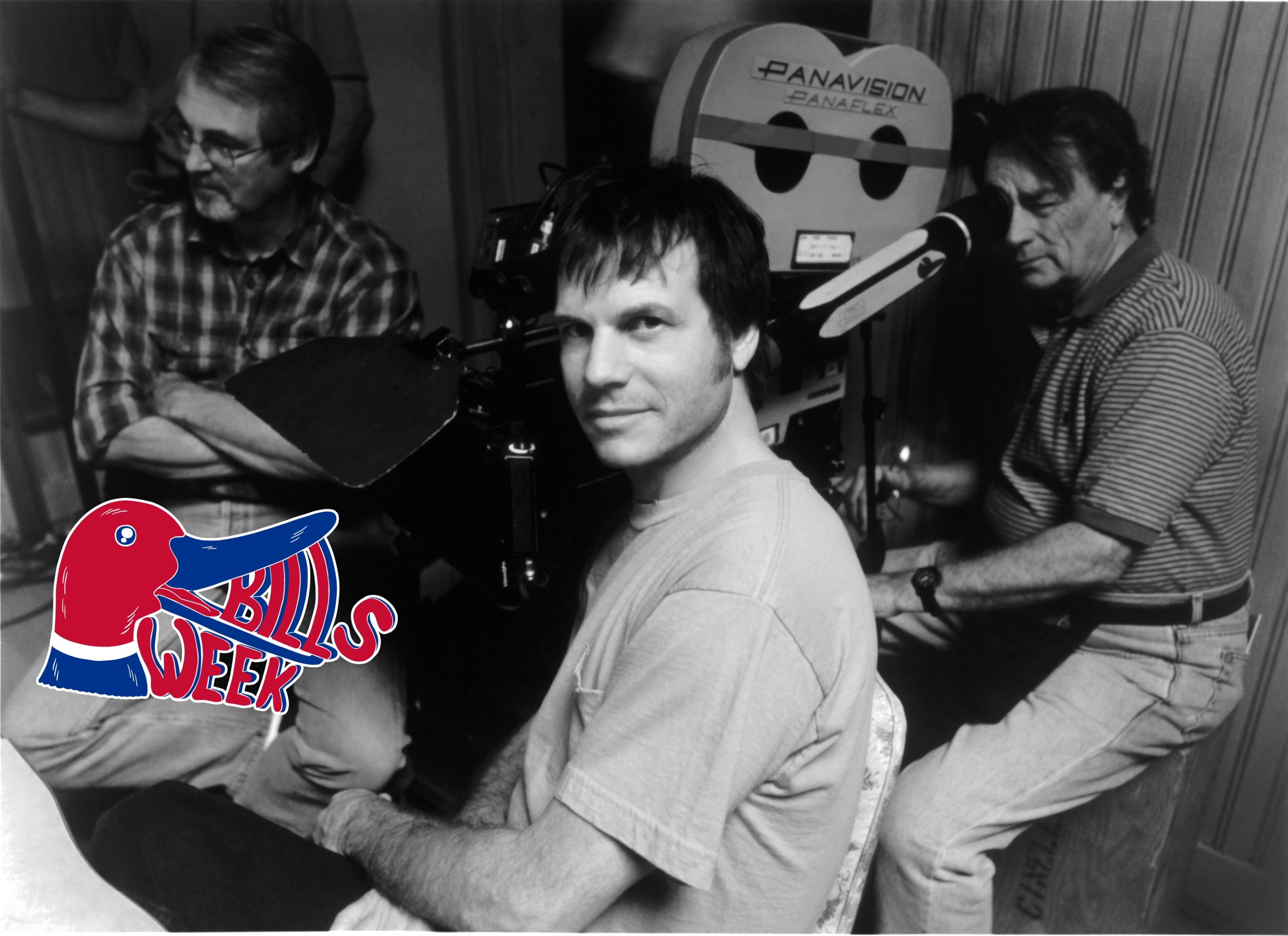As he told the story, Bill Paxton came to the movies as a teenager more or less how all teenagers discover things: by being startled out of laziness by an urge and interest that they didn't expect. Paxton credited a challenging drama teacher at his Fort Worth high school for part of this, and the rest—the rest of the story, and a film career that unfolded over four decades, until Paxton's death at 61 in 2017—was a matter of chasing his urge to make something with his friends. Before he went to Hollywood, Paxton shot movies on Super 8 film with similarly film-obsessed Texas friends he met while studying abroad in England after high school. "We made films because we liked to blow stuff up," Paxton told Texas Monthly in 1997.
At the time, he was promoting Traveller, the first movie Paxton had produced after what was already a long career that began with his father finding him work as a set-dresser on Encyclopaedia Britannica educational films, Paxton finding his way into the orbit of exploitation film maestro Roger Corman, and parlaying his jittery charisma into gradually bigger roles. By 1997, Paxton had already spent more than a decade poised somewhere between character actor and star. The friends with whom Paxton had snuck around railroad tracks and movie theaters two decades earlier had credits on Traveller, too.
"I’ve always wanted to be a filmmaker first and an actor second," Paxton said in that Texas Monthly profile, the (delightful) headline of which is "Bill, Due." He goes on:
"But it wasn’t until I had the clout from being in movies like Twister and Apollo 13 and True Lies that I was able to raise the money. This is my declaration of independence. By producing this movie, I’ve created a situation where I can play a great role that’s an iconoclastic role for me, like the character I played in One False Move. You play a dozen of these roles in your lifetime, you’ve got a shot at the Hall of Fame."
I can remember the first time I saw Paxton on film—it was Weird Science, and I remember him mostly being just kind of gnarly and gross—and several different instances of him being annihilated in variously memorable ways; Near Dark is a personal favorite, but Paxton also has the career achievement of dying at the hands of a Terminator, a Predator, and one of the Alien franchise's xenomorphs. Paxton was a versatile actor, and did a lot more on film than get blown up or blown away, but there were notes of that exuberant teenage pyromaniac in even his quieter performances—something pulling towards chaos, even as his characters fought against it. Paxton spent a lot of time on film with his mouth open and eyebrows steepling, working out how he was going to get himself out of a situation into which some combination of that insistent urge and some overwhelmed and mostly residual righteousness had gotten him. It wasn't until Paxton passed that I realized he was one of my favorite actors, and that there was no one else who could really do what he did.
The names of his old Texas movie-dirtbag buddies are in the credits of 2002's Frailty, which was Paxton's first and second-to-last film as a director; Tom Huckabee, whom Paxton met on that flight to England, is the film's executive producer, and Paxton's high school drama classmate Jim Flowers has a small part as a FBI agent. (Paxton also directed 2005's The Greatest Game Ever Played, which is a live-action Disney golf movie written by Twin Peaks co-creator Mark Frost, and which I have not seen.) Frailty is, in ways that I found pretty thrilling, exactly the sort of movie that a movie-besotted obsessive would make after decades of wanting to make a movie. If Paxton had by then more or less gotten past the urge to blow stuff up, he spends the film indulging seemingly every other one. But for all the Hitchcockian dissolves and stylized camera movements and editing decisions, Frailty is also oddly and effectively low-key.
There are only so many ways that a film about an affectionate, goofy single father who becomes an axe murderer after an encounter with an angel can or maybe should be understated, but Paxton the director reliably steers the story away from both the lurid and the metaphysical, and into deeper and darker waters. The script, by Brent Hanley, unfolds mostly in 1979, although the framing device in which Matthew McConaughey tells the story to a dismissive FBI agent played by Powers Boothe winds up delivering the film's last and most surprising twist. The whole film reels queasily in the wake of Paxton's unnamed character—he's listed in the credits as Dad—being called to become the God's Hand Killer, and is told largely through the eyes of his two young sons, who have to try to square their new circumstances and new father with the humble and loving life they used to have. The violence, virtually all of which is offscreen, is not the most unsettling part of the film.
Much of the film's force comes from Paxton's performance, which is both recognizably in line with other characters he played—men discovering, from one sick moment to the next, how decent they actually aren't—and different in one crucial way. In this role, Paxton is not brash in the ways he could be and often was, or conflicted in the ways he could be and often was. He is, instead, firm and certain and secure in his belief; his vision, however deranged, is absolutely clear, and he brings his sons into it without hesitation because he believes the work is important. Paxton the director is slippery about whether Dad has been touched by an angel or something much worse, but Paxton's performance is memorable precisely because it is so wholly without any wobble or give. He is, for most of the film, uncharacteristically and chillingly without any doubt at all. Whether the film believes he is right or not—whether Dad really is "destroying demons" or taking blameless human lives in service of a false and murderous certainty—Paxton's performance is committed and consistent enough to make any number of otherwise unbelievable possibilities feel not quite beyond belief.
"I really wanted to make a haunted movie," Paxton said in the film's production notes, and he succeeded in ways that have both won the film an enduring cult following and probably guaranteed that it disappeared without a sound commercially. (A deluxe 4K restoration of the film was released earlier this week.) Paxton directed Frailty as if he would never get a shot to make another film, but also with a striking restraint; it's singular and strange enough that it's difficult to imagine anyone else making it. "Perhaps only a first-time director, an actor who does not depend on directing for his next job, would have had the nerve to make this movie," Roger Ebert wrote in his review. He loved the film, for its qualities but also for the broader reason that Ebert often admired the movies that he admired, which came down to his sense of its purity of purpose. You could quibble with whether this is or isn't a good way to judge a film, but in Frailty's case I find the assessment pretty well inarguable. Paxton's refusal to wink or waver is what gives the film its strange and uncanny power. "It is uncompromised," Ebert went on. "It follows its logic right down into hell."






